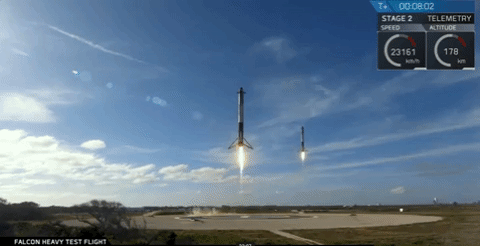
🧬 The Elon Code - how to understand Musk
Much has been said and written about how Elon Musk thinks and operates, but despite that, a key part has been neglected. There are two parts to The Elon Code, but only one part has gotten most of the attention. Here we dive into the second part.
Share this story!
Elon Musk is one of the most fascinating people of the 21st century. A unique entrepreneur and, right now, humanity's MVP.
Much has been said and written about how he thinks and operates, but I think a crucial part has been neglected despite that.
There are two parts to The Elon Code, but only one element has gotten all attention.
The Elon Code - part one
I have listened to and read most of what he has said over the years and have often heard him talk about "first principles thinking."
This part has been well covered, but let's repeat what it is. Musk:
“Well, I do think there's a good framework for thinking. It's physics. You know, the sort of first principles reasoning. Generally, I think there are - what I mean by that is, boil things down to their fundamental truths and reason up from there, as opposed to reasoning by analogy."
Batteries are an example. If they cost $600 to make, but the materials included in the battery only cost $80 to buy, then it must be possible to "assemble the atoms more efficiently" and reduce the cost close to $80.
This is very useful to understand what is possible and push hard to get there as soon as possible.
If you instead reasoned by analogy, you'd look at the cost of batteries and maybe go for a five or ten percent reduction in price.
This is how he reasoned about rockets.
Why does a rocket launch cost $65 million, or more, when the material to build it and the fuel to power it makes up only a few percent of the cost?
If you land and reuse rockets and "assemble the atoms more efficiently," it'll be possible for costs to drop dramatically.

The Elon Code - part two
This first part of his thinking is well covered, but the other part, to scale up the reasoning has received less attention.
For me, it was something he said in the long interview with the Third Row Tesla podcast that caught my attention.
When asked why he was ousted as CEO of Paypal, he explained that the others thought his plans were far too big and risky.
He wanted to fix all the things that made people withdraw money from Paypal. As long as Paypal remained a way to send money to each other and pay for some things on the internet, there would still be many reasons why people have to withdraw the money from there to use for other things in their lives.
If all this were offered in Paypal, there would be no need to withdraw them, and in the long run no need for banks.
PayPal could have become the world's most valuable company
So that was his goal - to make banks obsolete and replace the financial system we had since Medici in the 15th century with something else.
Had his plan been implemented and successful, Paypal would have been the world's most valuable company today, Elon Musk believes.
This was in the year 2000, dot-com companies were dropping like flies and the other founders of Paypal thought it was unnecessary to take such big risks, so they replaced him as CEO.
Don't just reason down, remember to reason up
The first part of The Elon Code is to reason down to the atomic level. The second part is to reason up from there.
If you reason by analogy you look at other companies and think "we could build a Uber for X, a Spotify for Y, a Tesla for Z".
That is not how Elon Musk thinks.
In the case of Tesla, he looked at the problem that needed solving (accelerate the world's transition to sustainable energy), applied first principles thinking on things like battery costs, and then scaled up the thinking from there.
That is why Tesla is not just a car company, but also an energy company, an AI company, an insurance company – and soon a robot company and even a robotaxi company.
The second part can be enormous in its scope, but appears to Musk as rational and not crazy. With this firm conviction, he then sets about realizing it.
Which he is obviously pretty good at as well.
Mathias Sundin
By becoming a premium supporter, you help in the creation and sharing of fact-based optimistic news all over the world.


